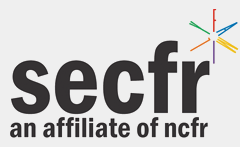Among Emerging Adulthood Adverse Childhood Experiences (ACEs) Relate to Anxiety, Depression, Life Satisfaction, and Survivor’s Guilt
Proposal Focus
Research
Presentation Type
Presentation
Abstract
Adverse childhood experiences (ACEs) are events that take place during one’s youth that may be stressful or traumatic (Adverse Childhood Experiences, 2017) and a strong focus within this body of knowledge has been on the experiences of childhood neglect and abuse. Emerging adulthood is a distinct developmental phase of the life course characterized by extensive self-exploration and consideration about the future (Arnett, 2000). Given that identity exploration continues to be important during emerging adulthood, it is important to study ACEs and the effects they have on the emerging adult who is making decisions regarding their future. Much of the literature on ACEs has been dedicated to establishing the relationship between ACEs and negative health outcomes. For instance, research has shown that ACEs have been linked to increased risks for suicide attempt and ideation throughout one’s lifespan (Sachs-Ericsson et. al, 2016) and has also been associated with feelings of anxiety (Briggs & Price, 2009), guilt (Kaess et. al, 2013), and depression (Briggs & Price, 2009). Therefore, ACEs and negative health outcomes have already been strongly confirmed. The positive psychology movement (Seligman & Csikszentmihalyi, 2014) has brought to scholars’ attention the need to expand on conceptualizations of what it means to be doing well. Specifically, it is no longer sufficient to define optimal well-being only in terms of the absence of negative outcomes. In order to assess holistic well-being, consideration must also be given to positive factors. A recent review of the literature yielded no studies that have explored the presence, or absence, of positive well-being factors in conjunction to negative health outcomes among those having experienced ACEs. In order to obtain a true understanding of holistic well-being at critical developmental junctures, the current study moves beyond a sole focus on pathology by also considering how life satisfaction and subjective happiness manifest during emerging adulthood in relation to ACEs.
Data on 284 participants were collected and analysis is forthcoming. Participants were recruited through the use of physical flyer postings, social media advertisements, and through Amazon’s Mechanical Turk (mTurk) system. Regression analysis and bivariate assessments will be used to explore the relationship between ACEs and depression, anxiety, life satisfaction, subjective happiness, and survivor’s guilt.
Findings will be discussed in terms of broadening our understanding of the impacts to holistic well being for as related to ACEs during a rather critical and busy developmental juncture, emerging adulthood. Moving beyond pathology-focused models will expand on professional practice by utilizing frameworks embedded within a strengths-based approach. Educators, advocates, practitioners, and clinicians can utilize this this knowledge to enhance their work with clients and the services provided.
Keywords
adverse childhood experiences, negative health outcomes, positive well being
Location
Tiger II
Start Date
9-3-2018 10:15 AM
End Date
9-3-2018 11:15 AM
Among Emerging Adulthood Adverse Childhood Experiences (ACEs) Relate to Anxiety, Depression, Life Satisfaction, and Survivor’s Guilt
Tiger II
Adverse childhood experiences (ACEs) are events that take place during one’s youth that may be stressful or traumatic (Adverse Childhood Experiences, 2017) and a strong focus within this body of knowledge has been on the experiences of childhood neglect and abuse. Emerging adulthood is a distinct developmental phase of the life course characterized by extensive self-exploration and consideration about the future (Arnett, 2000). Given that identity exploration continues to be important during emerging adulthood, it is important to study ACEs and the effects they have on the emerging adult who is making decisions regarding their future. Much of the literature on ACEs has been dedicated to establishing the relationship between ACEs and negative health outcomes. For instance, research has shown that ACEs have been linked to increased risks for suicide attempt and ideation throughout one’s lifespan (Sachs-Ericsson et. al, 2016) and has also been associated with feelings of anxiety (Briggs & Price, 2009), guilt (Kaess et. al, 2013), and depression (Briggs & Price, 2009). Therefore, ACEs and negative health outcomes have already been strongly confirmed. The positive psychology movement (Seligman & Csikszentmihalyi, 2014) has brought to scholars’ attention the need to expand on conceptualizations of what it means to be doing well. Specifically, it is no longer sufficient to define optimal well-being only in terms of the absence of negative outcomes. In order to assess holistic well-being, consideration must also be given to positive factors. A recent review of the literature yielded no studies that have explored the presence, or absence, of positive well-being factors in conjunction to negative health outcomes among those having experienced ACEs. In order to obtain a true understanding of holistic well-being at critical developmental junctures, the current study moves beyond a sole focus on pathology by also considering how life satisfaction and subjective happiness manifest during emerging adulthood in relation to ACEs.
Data on 284 participants were collected and analysis is forthcoming. Participants were recruited through the use of physical flyer postings, social media advertisements, and through Amazon’s Mechanical Turk (mTurk) system. Regression analysis and bivariate assessments will be used to explore the relationship between ACEs and depression, anxiety, life satisfaction, subjective happiness, and survivor’s guilt.
Findings will be discussed in terms of broadening our understanding of the impacts to holistic well being for as related to ACEs during a rather critical and busy developmental juncture, emerging adulthood. Moving beyond pathology-focused models will expand on professional practice by utilizing frameworks embedded within a strengths-based approach. Educators, advocates, practitioners, and clinicians can utilize this this knowledge to enhance their work with clients and the services provided.
![Southeastern Council on Family Relations Conference [2018-2020]](/assets/md5images/a0d3661d5139dc9b769a57be6f085156.png)

